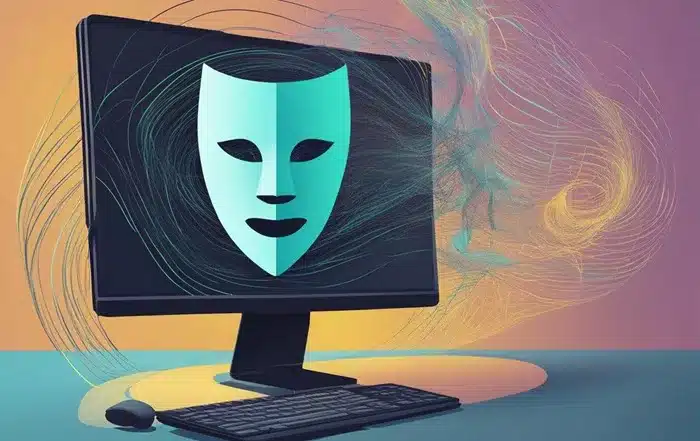Online anonymity is an increasingly critical topic in today’s digital age. With the internet becoming a central part of daily life, the need for privacy and security is paramount. The more we share personal information online, the more vulnerable we become to threats such as identity theft, surveillance, and data exploitation. This article explores why online anonymity is crucial and how individuals can safeguard their personal information while navigating the web.
Understanding Online Anonymity
Online anonymity refers to the ability of individuals to use the internet without revealing their identity or personal details. While some online activities may naturally involve sharing personal information, many users seek to protect their identity for reasons such as privacy, safety, and freedom of expression. Anonymity is about ensuring that one’s online actions are not easily traceable back to their real-world identity.
The Importance of Online Anonymity
1. Privacy Protection
In the digital age, personal information is constantly being collected. From social media platforms to online shopping sites, businesses track your behaviors, preferences, and personal details. Without proper protection, this data can be misused, leading to unwanted exposure or even identity theft. Anonymity shields users from unwanted surveillance and data collection.
2. Protection from Identity Theft
Online identity theft is a growing concern. Hackers can easily steal personal details such as credit card numbers, social security numbers, or login credentials. Anonymity can reduce the chances of becoming a victim by limiting the amount of personal data exposed on the internet. Using tools like VPNs (Virtual Private Networks) and proxies can help mask your online identity, making it harder for cybercriminals to target you.
3. Enhanced Security
In addition to identity theft, online anonymity can help protect you from other security threats such as hacking, phishing, and malware. By hiding your IP address, anonymizing your browsing activities, and using encrypted communication channels, you reduce the likelihood of falling victim to these online threats.
4. Freedom of Expression
One of the greatest benefits of online anonymity is the freedom to express oneself without fear of retaliation. In some countries, political dissent, religious beliefs, or social views can lead to censorship, harassment, or even legal repercussions. Anonymity allows individuals to speak out without putting themselves at risk, fostering a more open and free internet.
5. Avoiding Online Tracking and Profiling
Many websites track users’ browsing activities to create detailed profiles, which are then used for targeted advertising. While this might seem harmless, it can result in unwanted data collection and create a permanent digital footprint. Anonymity tools such as anonymous browsing, using privacy-focused search engines, and regularly clearing your browser’s cache can minimize the amount of data companies collect about you.
The Risks of Not Maintaining Online Anonymity
1. Exposure to Hackers and Cybercriminals
Failing to maintain online anonymity makes you an easy target for hackers and cybercriminals. Personal data, financial information, and even sensitive communications can be exposed if you’re not careful about protecting your identity online. Cybercriminals often exploit vulnerabilities to steal data, leading to identity theft, fraud, or blackmail.
2. Loss of Personal Privacy
Without adequate anonymity, your personal privacy is at risk. Websites and companies can track your movements across the internet, leading to a loss of privacy. This invasion of privacy can make you feel vulnerable and exposed, especially when sensitive information is involved, such as health details or personal finances.
3. Over-targeted Advertising
While some may see targeted advertising as a convenience, it can quickly become intrusive. Companies use your data to create hyper-specific ads, often bombarding you with offers based on your online behavior. Maintaining anonymity helps prevent these companies from building profiles and selling your data to advertisers.
How to Maintain Online Anonymity
1. Use a VPN (Virtual Private Network)
A VPN is one of the most effective tools for maintaining online anonymity. It encrypts your internet traffic and routes it through a remote server, making it difficult for anyone to track your browsing activity. VPNs also hide your IP address, further protecting your identity online.
2. Use Proxy Servers
Proxy servers act as intermediaries between your device and the internet. They mask your IP address, preventing websites from knowing your actual location or personal details. Proxies are often used in conjunction with VPNs for added security and anonymity.
3. Enable Privacy Settings on Social Media
Many social media platforms allow users to adjust their privacy settings. By making your profile private, restricting who can see your posts, and disabling location services, you can reduce the amount of personal information that is available to others online.
4. Use Encrypted Communication
Encrypted communication ensures that your messages and data are unreadable to anyone other than the intended recipient. Services like encrypted email providers and messaging apps like Signal offer secure ways to communicate without risking the exposure of sensitive information.
5. Browse Anonymously
Using privacy-focused browsers such as Tor helps anonymize your online activities. Tor routes your internet traffic through multiple layers of encryption, ensuring that your online movements are difficult to trace. It’s a useful tool for those who require high levels of anonymity.
Conclusion
In conclusion, online anonymity is essential for safeguarding personal privacy, enhancing security, and ensuring freedom of expression. As the digital landscape continues to evolve, individuals must be proactive about protecting their identity and reducing their online footprint. Using tools like VPNs, proxy servers, and encrypted communication services can help maintain a safe and anonymous presence on the internet. As online threats grow more sophisticated, taking steps to remain anonymous is not just a choice—it’s a necessity.


